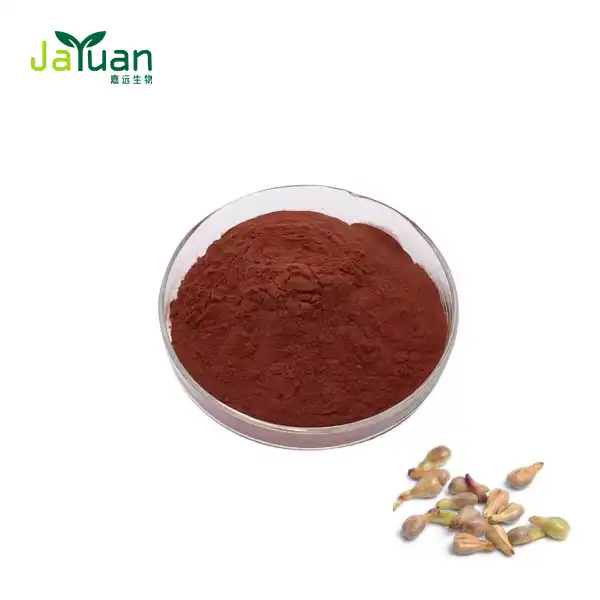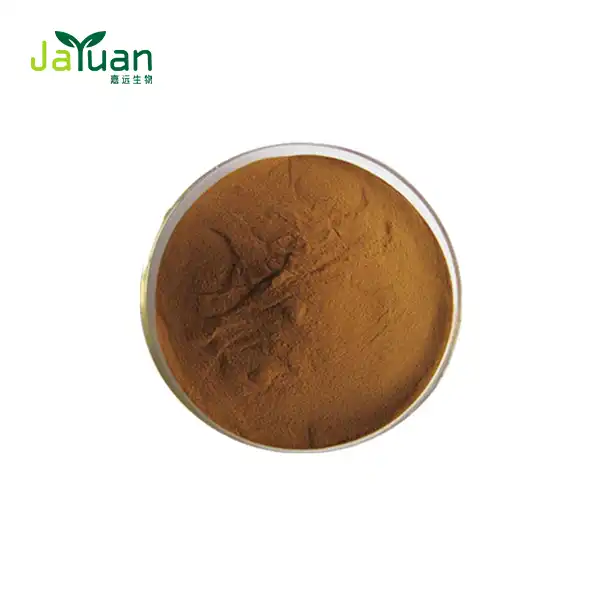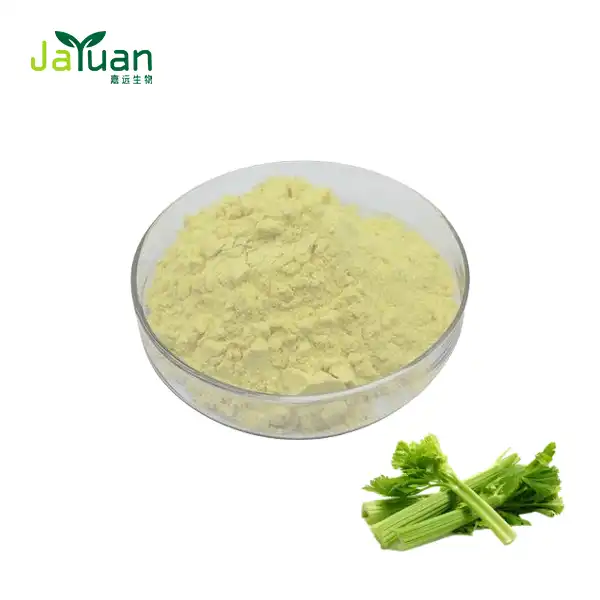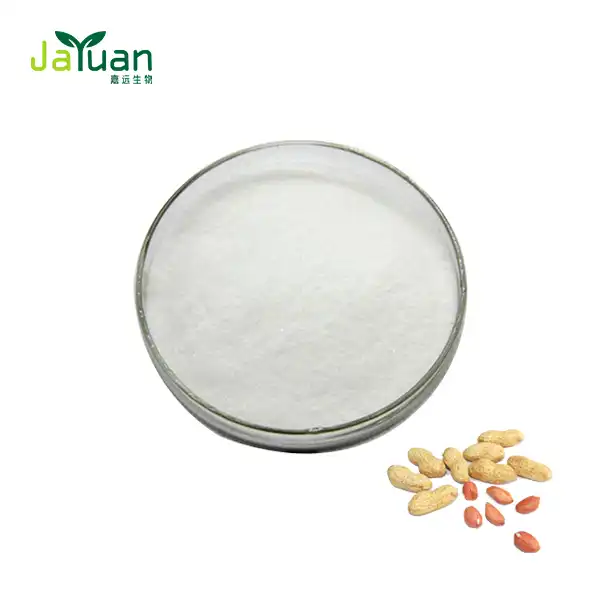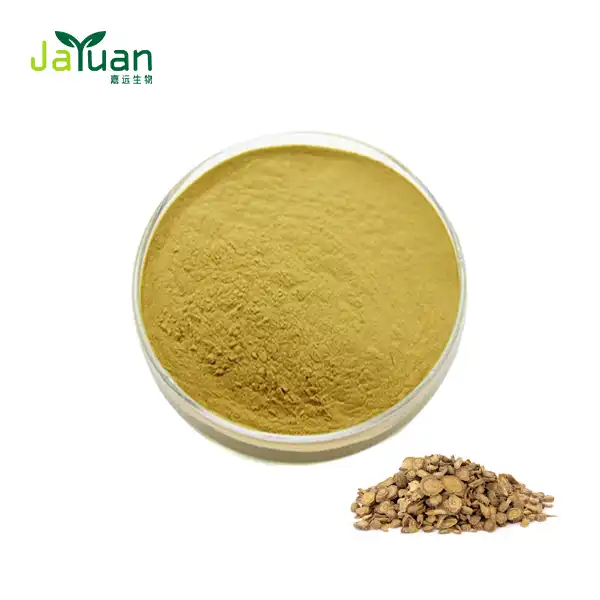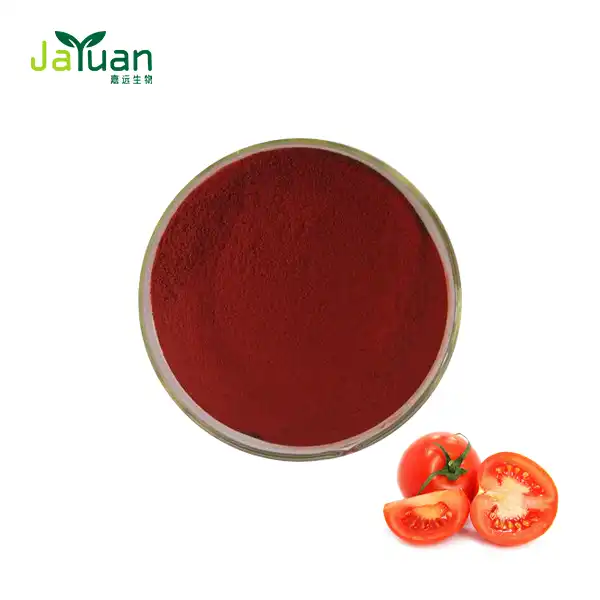Is hydrolyzed corn protein bad for you?
In recent years, hydrolyzed corn protein has gained attention in the food and supplement industries. As consumers become more conscious about their dietary choices, questions arise about the safety and benefits of various ingredients. One such ingredient that has sparked debate is Hydrolyzed Corn Protein Powder. In this article, we'll explore what hydrolyzed corn protein is, its potential benefits and drawbacks, and whether it's a healthy choice for you.
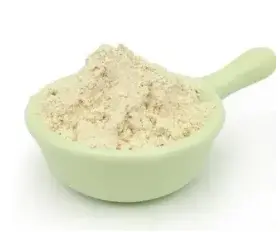
What is Hydrolyzed Corn Protein?
Hydrolyzed corn protein is derived from corn through a process called hydrolysis. This process breaks down the protein molecules into smaller peptides and amino acids, making them easier for the body to absorb. The resulting powder is commonly used as a flavoring agent, nutritional supplement, or protein source in various food products.
The production of hydrolyzed corn protein involves several steps:
- Corn kernels are processed to extract the protein-rich portion.
- The extracted protein undergoes hydrolysis, typically using enzymes or acids.
- The hydrolyzed protein is then dried and ground into a fine powder.
This cycle brings about an item that isn't just profoundly dissolvable yet additionally effectively edible. These qualities make hydrolyzed corn protein an alluring choice for both food producers and shoppers. Its solvency and edibility improve its flexibility and allure, prompting its boundless use in different food items.
Potential Benefits of Hydrolyzed Corn Protein Powder
While the debate about hydrolyzed corn protein continues, it's essential to consider its potential benefits:
- Improved Digestibility: The hydrolysis process breaks down proteins into smaller units, potentially making them easier for the body to digest and absorb. This can be particularly beneficial for individuals with digestive issues or those looking to enhance protein uptake.
- Versatility in Food Applications: Hydrolyzed Corn Protein Powder is widely used in the food industry due to its solubility and flavor-enhancing properties. It can be found in various products, including soups, sauces, and seasonings.
- Amino Acid Profile: Corn protein contains all essential amino acids, although it's not considered a complete protein like animal sources. However, the hydrolysis process can make these amino acids more bioavailable.
- Allergen-Friendly Option: For individuals with allergies to common protein sources like soy or dairy, hydrolyzed corn protein can serve as an alternative protein source.
- Potential Sports Nutrition Benefits: Some athletes and fitness enthusiasts use hydrolyzed protein powders, including corn protein, to support muscle recovery and growth.
Concerns and Potential Drawbacks
Despite its potential benefits, there are some concerns associated with Hydrolyzed Corn Protein Powder bulk:
- GMO Concerns: A significant part of the corn utilized in the development of hydrolyzed corn protein is frequently hereditarily changed. For shoppers who like to keep away from hereditarily changed organic entities (GMOs) for individual, wellbeing, or natural reasons, this can be an eminent disadvantage. It means a lot to search for non-GMO certificates or confirm with producers if staying away from GMOs is vital.
- Allergic Reactions: In spite of the fact that corn sensitivities are moderately unprecedented, they in all actuality do influence a few people. For those with a corn sensitivity, it is fundamental to keep away from hydrolyzed corn protein, as it can set off unfavorably susceptible responses. Continuously check item marks cautiously and talk with medical care suppliers to successfully oversee and keep away from likely allergens.
- Monosodium Glutamate (MSG) Content: The hydrolysis process can result in the formation of free glutamic acid, which is chemically similar to MSG. This has raised concerns among some consumers who avoid MSG due to potential sensitivities.
- Nutritional Profile: Contrasted with other protein sources, hydrolyzed corn protein could have a less adjusted amino corrosive profile, possibly missing a few fundamental amino acids that are significant for ideal wellbeing. This unevenness can affect the generally speaking dietary nature of the protein, making it less complete contrasted with different choices
- Processing Concerns: Some consumers prefer minimally processed food ingredients, valuing naturalness and simplicity. The extensive processing required to produce hydrolyzed corn protein might be a significant drawback for these individuals, as they may be concerned about the effects of such processing on the food’s purity and nutritional quality.
It's important to note that while these concerns exist, the Food and Drug Administration (FDA) generally recognizes hydrolyzed corn protein as safe when used as intended.
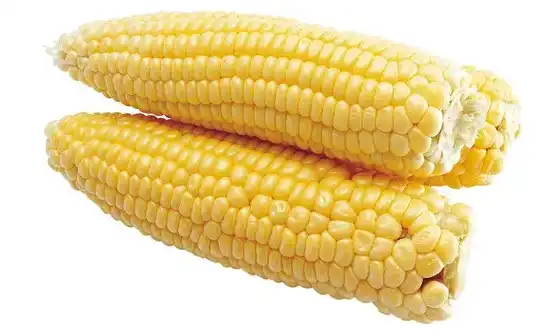
Making an Informed Decision
When considering whether Hydrolyzed Corn Protein Powder bulk is right for you, it's essential to weigh the potential benefits against the drawbacks. Here are some factors to consider:
- Personal Health Goals: If you're looking to increase your protein intake or need an easily digestible protein source, hydrolyzed corn protein might be beneficial.
- Dietary Restrictions: For those with allergies to common protein sources, hydrolyzed corn protein could be a viable alternative. However, individuals with corn allergies should avoid it.
- GMO Preferences: If avoiding GMOs is a priority, look for non-GMO certified hydrolyzed corn protein or consider alternative protein sources.
- Whole Food Preference: If you prefer minimally processed foods, you might want to opt for whole food protein sources instead.
- Consultation with a Healthcare Professional: If you have specific health concerns or conditions, it's always best to consult with a healthcare professional or registered dietitian before making significant changes to your diet.
Remember that hydrolyzed corn protein is often used in small amounts as a flavoring agent in many processed foods. If you're concerned about its consumption, check food labels carefully and be aware of its presence in various products.
Conclusion
In conclusion, Hydrolyzed Corn Protein Powder isn't inherently "bad" for you, but it may not be the ideal choice for everyone. Its safety and benefits depend on various factors, including individual health status, dietary needs, and personal preferences. While it offers potential benefits in terms of digestibility and versatility, concerns about GMOs, processing, and nutritional profile should be considered. For more information about plant extracts and high-quality nutritional ingredients, feel free to contact us at sales@jayuanbio.com.
References
1. Food and Drug Administration. (2021). Generally Recognized as Safe (GRAS).
2. Pasupuleti, V. K., & Braun, S. (2010). State of the art manufacturing of protein hydrolysates. In Protein Hydrolysates in Biotechnology (pp. 11-32). Springer, Dordrecht.
3. Cerletti, P., & Restani, P. (1985). Maize proteins. In Plant Proteins (pp. 115-138). Springer, Dordrecht.
4. Schaafsma, G. (2009). Safety of protein hydrolysates, fractions thereof and bioactive peptides in human nutrition. European journal of clinical nutrition, 63(10), 1161-1168.
5. Clemente, A. (2000). Enzymatic protein hydrolysates in human nutrition. Trends in Food Science & Technology, 11(7), 254-262.

